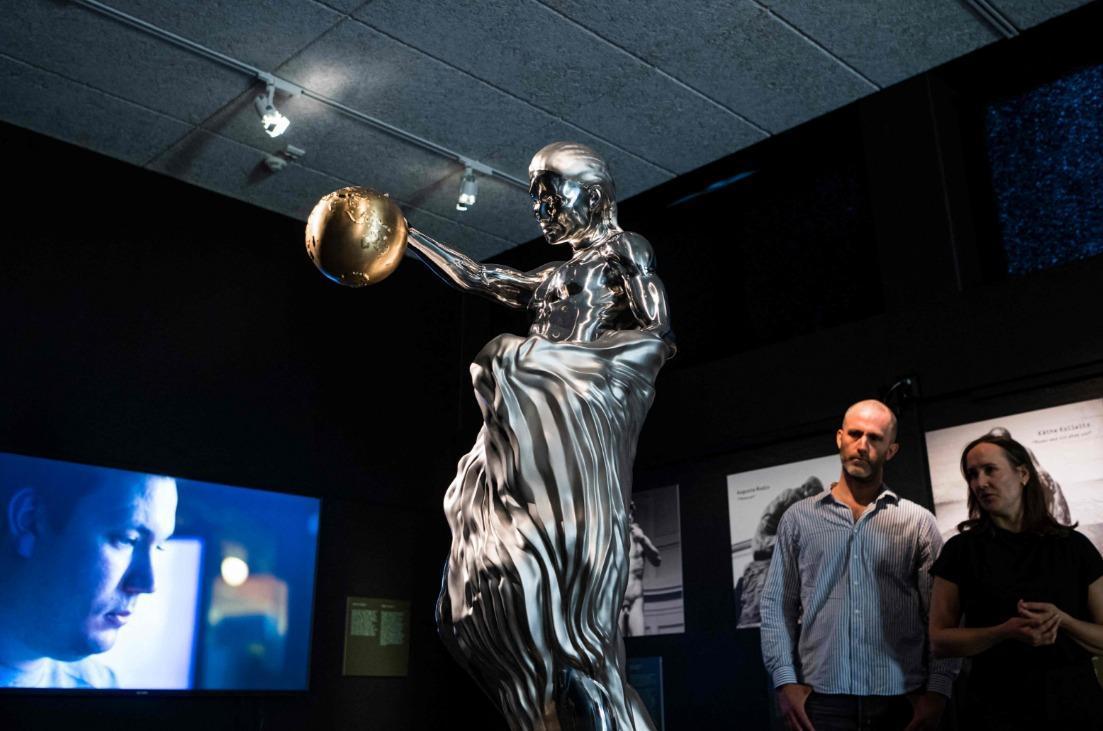UN talks aim to harness AI power and potential
UNITED NATIONS

The United Nations is convening this week a global gathering to try to map out the frontiers of artificial intelligence and to harness its potential for empowering humanity.
The UN hopes to lay out a clear blueprint on the way forward for handling AI, as development of the technology races ahead the capacity to set its boundaries.
The “AI for Good Global Summit”, being held in Geneva on June 6-7, will bring together around 3,000 experts from companies like Microsoft and Amazon as well as from universities and international organisations to try to sculpt frameworks for handling AI.
“This technology is moving fast,” said Doreen Bogdan-Martin, head of the International Telecommunication Union, the U.N.’s information and communications technology agency that convened the summit.
“It’s a real opportunity for the world’s leading voices on AI to come together on the global stage and to address governance issues,” she told reporters.
“Doing nothing is not an option. Humanity is dependent upon it. So we have to engage and try and ensure a responsible future with AI.”
She said the summit would examine possible frameworks and guardrails to support safe AI use.
Listed participants include Amazon’s chief technology officer Werner Vogels, Google DeepMind chief operating officer Lila Ibrahim.
They will be joined by dozens of robots, including several humanoids like Ai-Da, the first ultra-realistic robot artist; Ameca, the world’s most advanced life-like robot; the humanoid rock singer Desdemona; and Grace, the most advanced healthcare robot.
The summit wants to identify ways of using AI to advance the U.N’s lagging sustainable development goals on issues such as health, the climate, poverty, hunger and clean water.
“This summit can help ensure that AI charts the course that benefits humanity,” U.N. chief Antonio Guterres said.
However, while AI proponents hail the technology for how it can transform society, including work, healthcare and creative pursuits, others are worried by its potential to undermine democracy.
“We’re kind of in a perfect storm of suddenly having this powerful new technology - I don’t think it’s super-intelligent - being spread very widely and empowered in our lives, and we’re really not prepared,” said serial AI entrepreneur Gary Marcus.
“We’re at a critical moment in history when we can either get this right and build the global governance we need, or get it wrong and not succeed and wind up in a bad place where a few companies control the fates of many, many people without sufficient forethought,” he said.
Last month, EU lawmakers pushed the bloc closer to passing one of the world’s first laws regulating systems like OpenAI’s ChatGPT chatbot. There is also growing clamour to regulate AI in the United States.
ChatGPT has become a global sensation since it was launched late last year for its ability to produce human-like content, including essays, poems and conversations from simple prompts.
It has sparked a mushrooming of generative AI content, leaving lawmakers scrambling to try to figure out how to regulate such bots.
















